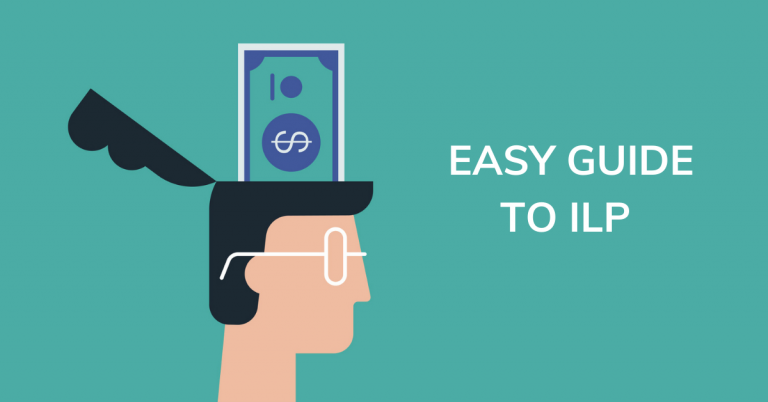What are investment-linked insurance policies (ILP)? Are they suitable for you? In a nutshell, ILP is a package deal that packs both investment and protection components into a single insurance policy.
It is a life insurance plan that lets you invest, by purchasing units in one or more sub-funds of your choice, while offering protection in the event of death.
Find out how they work and the things to consider before adding them to your portfolio.
ILP, deconstructed
Unlike term insurance, which offers purely protection, or whole life insurance, which offers protection and a guaranteed cash value component that is available when the policy remains inforce, ILP offers some protection and an account value that varies depending on your investment performance.
Think of ILP as a gardening starter kit comprising seeds (investment component) and soil (protection component), where you get to mix and match the type and quantity of seeds, and vary the amount of soil required, as long as the total value of the items fall within what you paid for.
Like your policy where the premium is split between the units in your sub-fund and your protection coverage, the more you increase one, the less you will have of the other.
There are traditionally two types of ILP – single premium or regular premium. For single premium plans, a lump sum is paid at the start of the policy and most of it goes towards purchasing units in a sub-fund. Over the policy period, the units will be sold to fund the protection component.
For regular premium plans, premiums received are invested first before accounting for any charges. For example, insurance charge is to be deducted through cancellation of units.
Another core feature of ILP is that you get to choose which sub-fund(s) to invest in. This should be aligned to your investment objectives and risk appetite as investment returns are not guaranteed and depends entirely on how well your sub-funds are performing.
Going back to the gardening example, you would likely choose a variety of seeds that you are confident of growing, taking into account your past experience and skills in keeping your plants alive. For instance, do you prefer hardy plants that require little to no care, or unpredictable plants like strawberries that are challenging, but also rewarding to grow?
And if one day you find that you are not suited to growing strawberries and would do much better switching them out with tomato seeds instead, that’s fine too. Otherwise known as fund-switching, most ILP allow you the flexibility of moving your money from one sub-fund to another, albeit at a fee.
Should I get an ILP?

Even though digital ILP comes with a clearer structure and lower costs, one thing remains the same – investment returns are not guaranteed. As a result, deciding if you are suited for an ILP really depends on the following factors.
- Investment horizon: You need to have time on your side to ride out market fluctuations before you can realise the returns on your investment.
- Your risk appetite: ILP offers higher returns but also more risk. Because returns are non-guaranteed, ILPs may not be suitable for the most cautious of investors, especially those who are looking for capital guaranteed products.
- Your investment approach ILP is more suited to those who prefer to take an active approach to investing without having to spend too much time and effort on monitoring the market. One can dollar-cost-average by choosing a regular premium for investment over a period of time, averaging the price payable for the asset and allowing one to avoid timing the market.
- Finances: Because ILP works better across a longer term horizon, you would also have to sufficient finances to pay for premiums over a longer period.
Other things to consider before you sign up for an ILP are your objectives – are you looking to invest in a fuss-free way while getting basic insurance coverage? Or are you looking to increase your protection coverage? If your answer is the latter, you are much better off getting term insurance.
[End]
Information is accurate as at 21 March 2021. This policy is underwritten by Etiqa Insurance Pte. Ltd. (Company Reg. No. 201331905K). Protected up to specified limits by SDIC. You should seek advice from a financial adviser before deciding to purchase the policy. If you choose not to seek advice, you should consider if the policy is suitable for you.
As term life insurance has no savings or investment feature, there is no cash value if the policy ends of if the policy is terminated prematurely. It is usually detrimental to replace an existing policy with a new one. A penalty may be imposed for early termination and the new plan may cost more or have less benefit at the same cost.
As buying a whole life insurance policy is a long-term commitment, an early termination of the policy usually involves high costs and the surrender value, if any, that is payable to you may be zero or less than the total premiums paid. This advertisement has not been reviewed by the Monetary Authority of Singapore.
Tiq by Etiqa Insurance Pte. Ltd.
A digital insurance channel that embraces changes to provide simple and convenient protection, Tiq’s mission is to make insurance transparent and accessible, inspiring you today to be prepared for life’s surprises and inevitabilities, while empowering you to “Live Unlimited” and take control of your tomorrow.
With a shared vision to change the paradigm of insurance and reshape customer experience, Etiqa created the strong foundation for Tiq. Because life never stops changing, Etiqa never stops progressing. A licensed life and general insurance company registered in the Republic of Singapore and regulated by the Monetary Authority of Singapore, Etiqa is governed by the Insurance Act and has been providing insurance solutions since 1961. It is 69% owned by Maybank, Southeast Asia’s fourth largest banking group, with more than 22 million customers in 20 countries; and 31% owned by Ageas, an international insurance group with 33 million customers across 16 countries.
Discover the full range of Tiq online insurance plans here.









